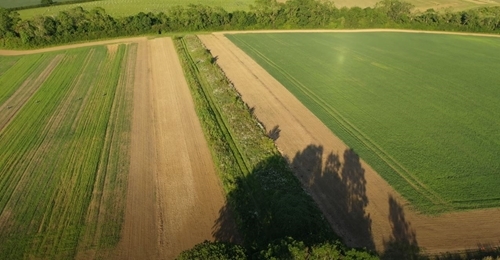Written by Henrietta Appleton, Allerton Project
3 Minute Read

The need to establish domestic frameworks for farming and conservation post-Brexit provided hope that Government would consider some of the alternative approaches to conservation and sustainable agriculture that had not found favour within EU-driven policy. Whilst farming policy has looked to embrace a more sustainable, practical future with, for example, the inclusion of agro-ecological approaches in the Agriculture Act, the approach to wildlife conservation, as demonstrated by the latest pronouncements from Defra, seems to be ‘stuck in the mud’.
The first scheme that sought to safeguard and enhance our landscapes, wildlife and built heritage was Environmentally Sensitive Areas, introduced in 1987. Since then Governments of different persuasions have introduced a raft of agri-environment schemes (AES) to help restore our degraded habitats and landscapes. The total cost of these to the UK public purse to 2019 is c£8.5bn (Defra 2020).
Yet despite all this investment and with an increase in the area of our land under designations to c. 28%, the UK continues to miss domestic and international targets. For example, the JNCC’s UKBI Birds of the wider countryside indices show that farmland birds and woodland birds remain in decline; whilst key ground-nesting waders such as the Curlew continue to decline despite research demonstrating that, in addition to habitat pressures, increased predation is a serious threat to breeding success and, therefore, to the very survival of the species.
But there are ‘gold star’ examples where private investment (not tied by prescriptive approaches) has achieved demonstrable success in reversing biodiversity declines. The Allerton Project is just one example, where, through a management approach, songbird numbers doubled in just 3 years. Here Government AES have been supplemented by game management techniques such as predator control and supplementary feeding with great success. And the story in the uplands on grouse moors for upland waders and other ground-nesting species is just as encouraging for what can be done.
Whilst game management techniques such as predator control are not the answer to all species recovery, the point is that Government should be following the science – a point made by Lord Krebs (who was involved in research into farmland bird conservation when at Oxford University) in both yesterday’s Committee of the Whole House (23rd June) and the second reading debate (7th June) on the Environment Bill in the House of Lords. On 7th June he said “..do the Government know what actions they will have to take to restore nature? Many of the initiatives supported under Pillar 2 of the common agricultural policy failed to enhance nature because they were not based on good science... Will the Government be able to avoid making the same mistakes?...”.
I can partly answer the second part of that question. In some situations, scientific evidence does exist but its conclusions are not always implemented, particularly where the answers may not be politically palatable. For example, grouse moors undertaking controlled burning and predator management support higher upland wader abundance than non-grouse moor areas. I fear, therefore, that nature recovery policy is not being driven by science but by political expediency and social media campaigns.
So what is the point of setting yet more legally binding targets if policy is simply not going to reflect the actions that are needed?
This Government has been world-leading in many new initiatives. Now is the time for it to step up to the challenge and encourage a range of conservation measures that address the different pressures that our wildlife is facing, including habitat improvement and connectivity, but also scientifically-proven measures such as controlling predators before we miss another target and see more species on the brink of extinction.